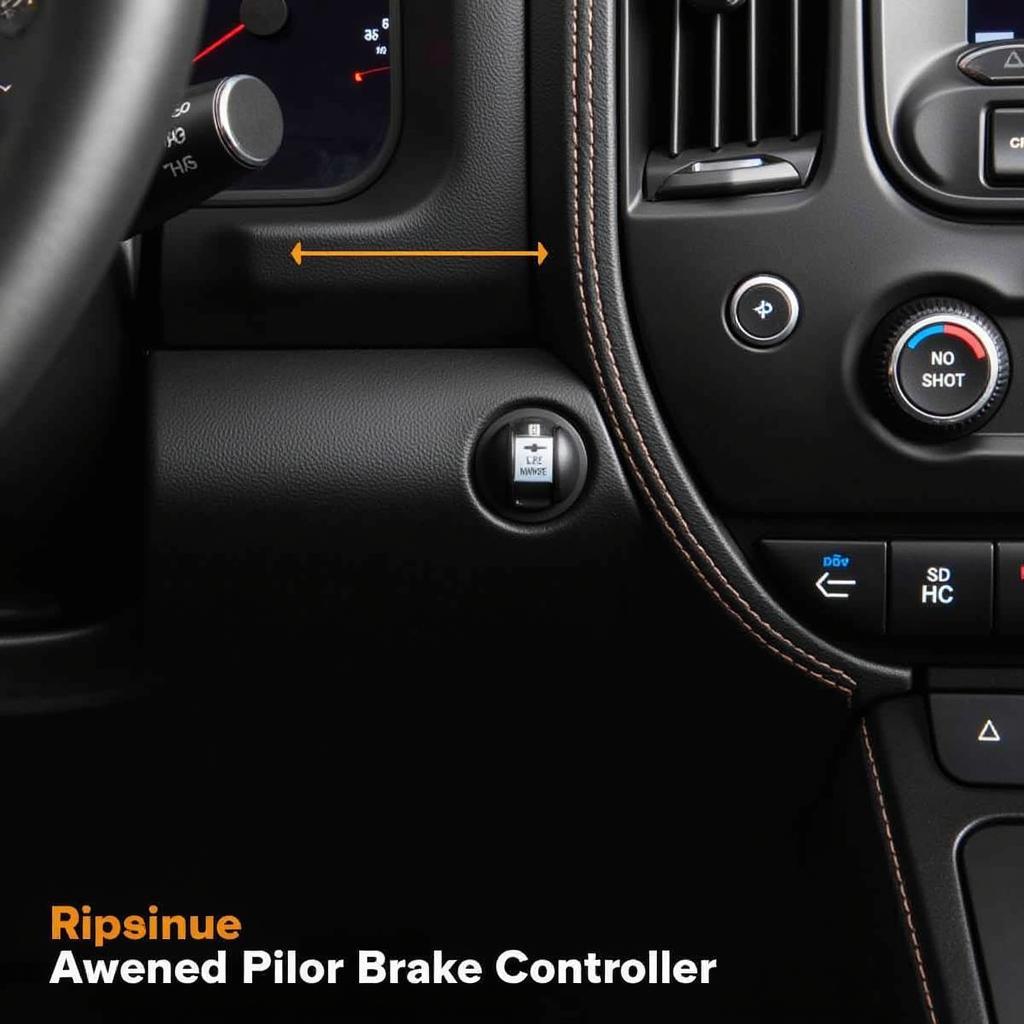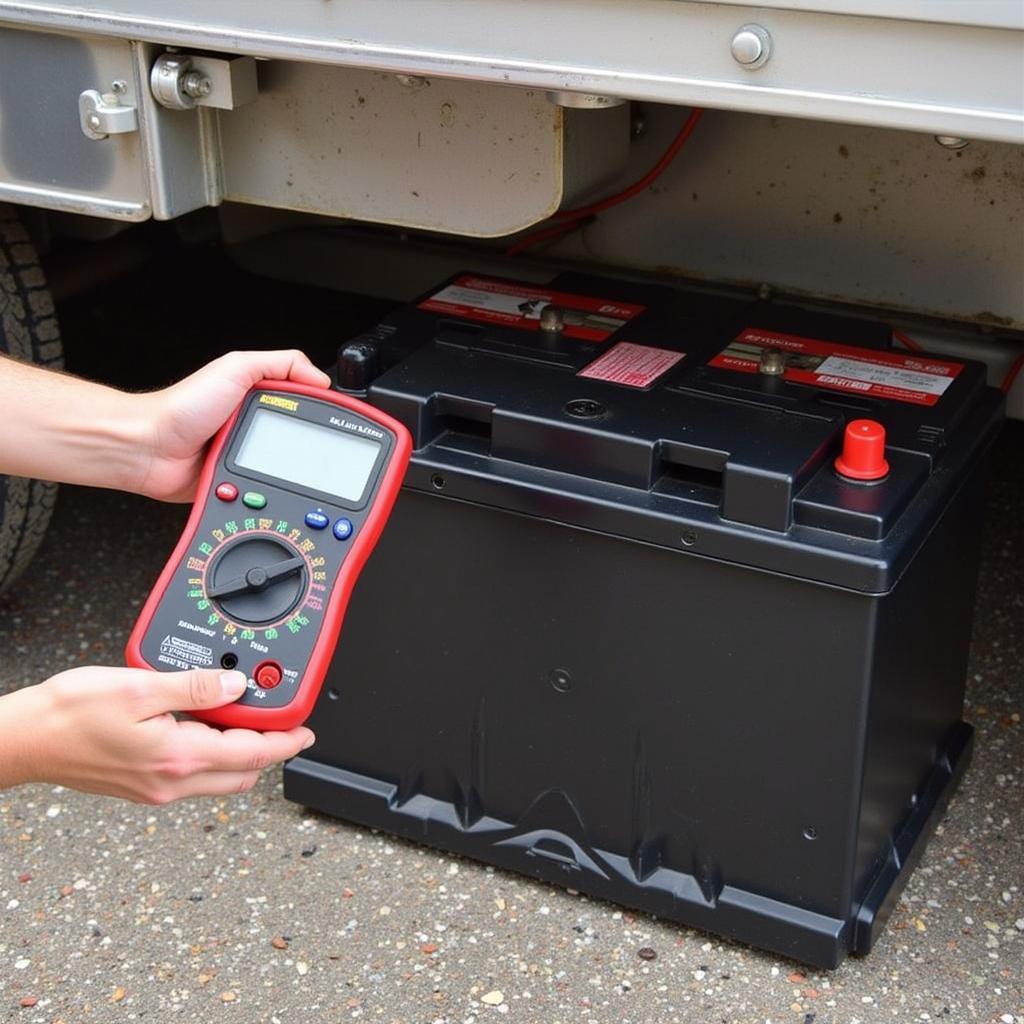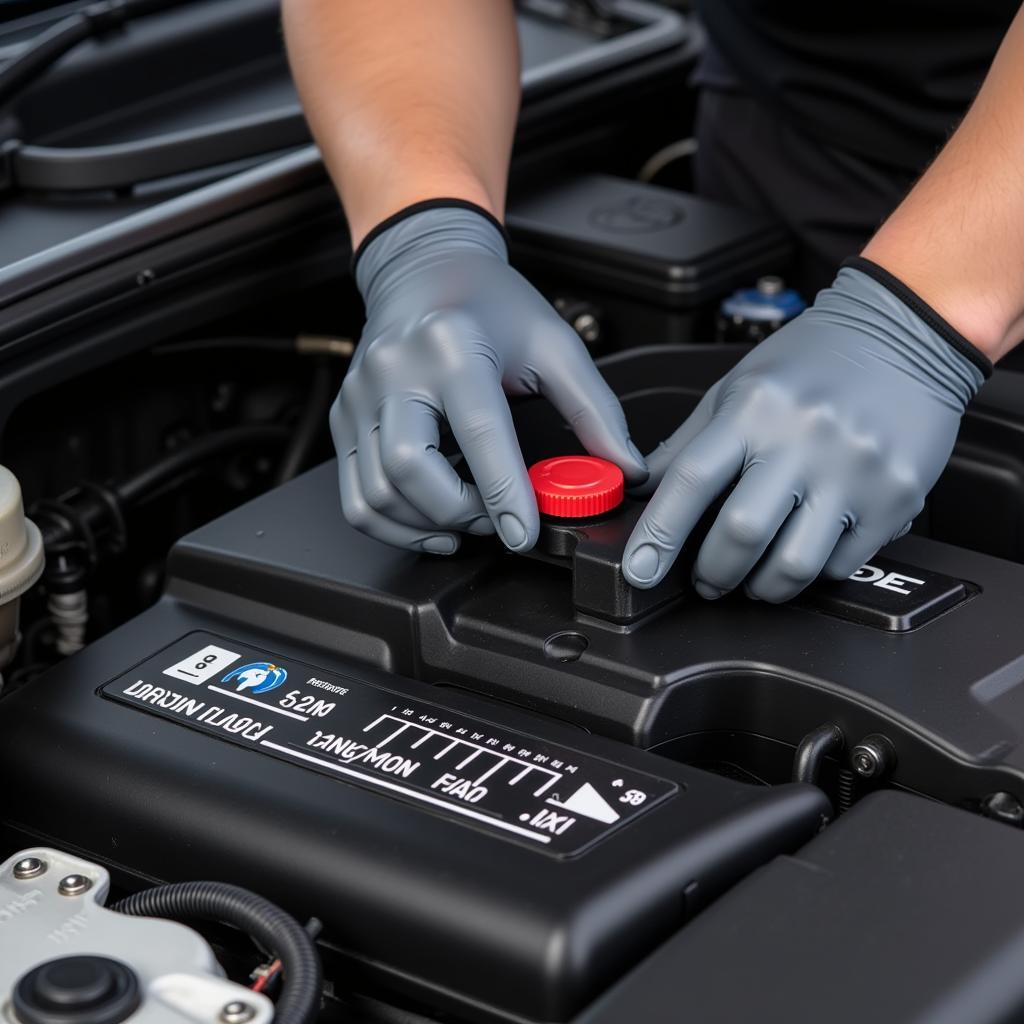The “trailer brake system” warning light on your Chevy Silverado dashboard is a clear sign that something isn’t right with your trailer’s braking system. This warning can be triggered by various issues, ranging from simple connectivity problems to more serious electrical or mechanical faults. Ignoring this warning light could lead to dangerous situations, especially when towing heavy loads. This comprehensive guide delves into the common causes of the Chevy Silverado trailer brake warning and provides potential solutions to get you back on the road safely.
Understanding Your Silverado’s Trailer Brake System
Before troubleshooting, it’s crucial to understand how your Silverado’s trailer brake system works. This system is designed to activate your trailer’s brakes in sync with your truck’s brakes, ensuring safe and controlled stops, especially when hauling heavy loads. The system relies on a trailer brake controller, usually located under the dash, and a wiring harness that connects your Silverado to your trailer. When you apply the brakes, the controller sends a signal through the wiring harness to the trailer’s brakes, engaging them proportionally to the pressure you apply on the truck’s brake pedal.
 Chevy Silverado Trailer Brake Controller
Chevy Silverado Trailer Brake Controller
Common Causes of a Chevy Silverado Trailer Brake Warning
1. Trailer Wiring Issues
One of the most common culprits behind the trailer brake warning is a problem with the wiring harness connecting your Silverado to your trailer.
- Loose or Corroded Connections: A loose or corroded connection within the wiring harness can disrupt the signal between your truck and the trailer’s brakes.
- Damaged Wiring: Physical damage to the wiring, such as cuts or fraying, can also interrupt the signal flow.
Solution: Thoroughly inspect the entire length of the wiring harness, including the connectors at both the truck and trailer ends. Look for any signs of damage, loose connections, or corrosion. If you find any issues, repair or replace the affected wiring components.
2. Faulty Trailer Brake Controller
A malfunctioning trailer brake controller can also trigger the warning light. The controller acts as the brain of the trailer brake system, and if it’s not working correctly, it won’t be able to send the proper signals to the trailer’s brakes.
- Blown Fuse: A blown fuse in the trailer brake controller circuit can disable the entire system.
- Internal Controller Failure: The internal components of the controller can fail due to wear and tear, voltage fluctuations, or exposure to moisture.
Solution: Check the fuse related to the trailer brake controller in your Silverado’s fuse box. If the fuse is blown, replace it with a new one of the correct amperage. If the fuse isn’t the issue, the trailer brake controller itself might need to be tested and potentially replaced.
3. Issues with the Trailer Brakes
Sometimes, the problem lies within the trailer’s braking system itself, rather than with the Silverado.
- Worn Brake Shoes or Pads: Over time, the brake shoes or pads on your trailer’s brakes can wear down, reducing their effectiveness and potentially triggering the warning light.
- Malfunctioning Trailer Brake Magnets: Trailer brake magnets are responsible for applying the brakes when they receive a signal from the controller. A faulty magnet can prevent the brakes from engaging properly.
Solution: Inspect your trailer’s brakes for any signs of wear and tear, including worn brake shoes or pads, and damaged or malfunctioning brake magnets. If you find any issues, have them repaired or replaced by a qualified mechanic.
4. Low Trailer Battery (Electric Brakes)
If your trailer is equipped with electric brakes, a low battery can also cause the trailer brake warning light to illuminate. Electric brakes require a constant power supply from the trailer’s battery to function correctly.
Solution: Check the voltage of your trailer’s battery using a multimeter. If the voltage is low, charge the battery or replace it if necessary.
 Testing Trailer Battery Voltage
Testing Trailer Battery Voltage
Using Remote Diagnostics for Advanced Troubleshooting
For more complex issues, remote diagnostics can be invaluable. As an expert in automotive electrical engineering specializing in remote diagnostics, I can access your Silverado’s onboard computer system to retrieve valuable data and pinpoint the root cause of the trailer brake warning.
For instance, if the warning light is intermittent, remote diagnostics can help identify temporary faults or glitches within the system that might not be apparent during a visual inspection. By analyzing the data logs and running specific tests remotely, I can provide you with a precise diagnosis and recommend the appropriate course of action. This saves you time and effort, especially for issues that require specialized knowledge or tools.
Preventing Future Trailer Brake Issues
Preventing trailer brake problems is always better than dealing with them on the road. Here are some proactive measures:
- Regularly Inspect Wiring and Connections: Inspect your trailer wiring harness and connections before each towing trip for any signs of damage, looseness, or corrosion.
- Test Your Trailer Brakes: Before each trip, test your trailer brakes by manually activating the controller to ensure they are engaging properly.
- Maintain Your Trailer’s Braking System: Have your trailer’s brakes inspected and serviced regularly by a qualified mechanic, especially if you frequently tow heavy loads.
Conclusion
A “trailer brake system” warning on your Chevy Silverado should never be ignored. By understanding the common causes and following the troubleshooting steps outlined in this guide, you can often resolve the issue yourself. However, for complex problems or if you’re unsure about performing any repairs, seeking professional help from a qualified mechanic or utilizing remote diagnostics services is always recommended. Remember, safety should always be your top priority when towing, and maintaining a properly functioning trailer brake system is paramount to safe travels.
FAQs
Q1: Can I drive my Silverado with the trailer brake warning light on?
A: While you might be able to drive a short distance, it’s highly discouraged to ignore the warning. Driving with a faulty trailer brake system can be extremely dangerous, especially when towing heavy loads.
Q2: How often should I have my trailer’s brakes serviced?
A: It’s generally recommended to have your trailer’s brakes inspected and serviced at least once a year or every 12,000 miles, whichever comes first. However, if you frequently tow heavy loads or drive in harsh conditions, more frequent servicing might be necessary.
Q3: Do I need a special wiring harness for my Silverado?
A: Yes, your Silverado requires a compatible wiring harness that matches the electrical system of your trailer. Using the correct harness ensures proper signal transmission and prevents potential electrical problems.
Q4: Can I install a trailer brake controller myself?
A: While it’s technically possible to install a controller yourself if you have some mechanical skills, it’s generally recommended to have it professionally installed. This ensures it’s wired correctly and calibrated properly for your specific Silverado and trailer combination.
Q5: How can I learn more about my Silverado’s trailer brake system?
A: The owner’s manual of your Silverado provides detailed information about the trailer brake system, including specific troubleshooting tips and instructions.
For more information about specific model year Silverado trailer brake systems, you can visit the following links:
- 2015 Chevy Silverado Trailer Brake System Warning
- 2017 Chevy Silverado Trailer Brake System Warning
- 2014 Chevy Silverado Trailer Brake System Warning
- 2015 Chevy 2500 Trailer Brake System Warning
Always remember that your safety and the safety of others on the road should be your primary concern when towing.

